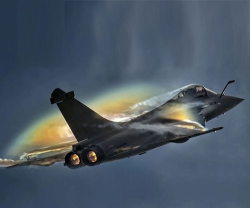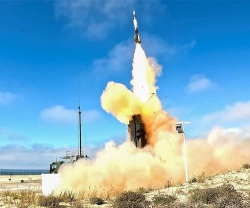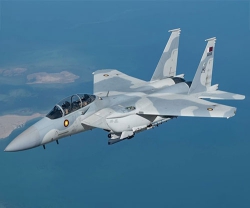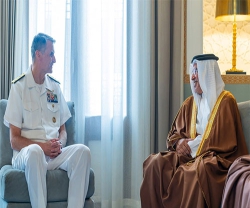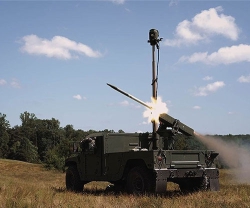NATO and Ukraine launched a major military exercise in the Black Sea and southern Ukraine. Sea Breeze 2021 comes amid a rise in tensions between the alliance and Moscow.
The Russian Defense Ministry said it would monitor the drills closely, Reuters reported.
The annual Sea Breeze exercise runs from June 28 through July 10 with the participation of 32 countries.
Most Black Sea nations, NATO allies, and partners are joining the exercise, providing 5,000 troops, 32 ships, 40 aircraft, and 18 special operations and dive teams.
Four Arab countries (Egypt, UAE, Morocco and Tunisia) are joining the Sea Breeze 2021 naval exercises as participant or observers. Even countries that do not have any official relations or whose relations are going through a critical period of tension, such as Israel, Turkey and Pakistan, are also participating in these naval maneuvers.
This year, Ukraine and United States are co-hosting the exercise involving sea, land, and air components.
The drills across the Black Sea region come after Russia claimed on June 23 that it fired warning shots and dropped bombs in the path of the British destroyer HMS Defender to force it to change course from the area near the Crimean city of Sevastopol.
Russia claims it fired warning shots and dropped bombs in the path of the British destroyer the HMS Defender in the Black Sea. London denies that any shots were fired.
Britain’s Defense Ministry denied that the HMS Defender had been fired upon, saying that Russia was carrying out a previously announced “gunnery exercise” in the area. Britain said it was practicing freedom of navigation in Ukrainian and international waters.
In response to the incident, Moscow warned it was prepared to fire on warships entering territorial waters it claims around Ukraine’s Crimean Peninsula, which Russia seized in March 2014 in a move not recognized by most of the international community.
The Russian Embassy in Washington has called on the United States and its allies to avoid military exercises in the Black Sea, saying such maneuvers “increase the risk of unintentional incidents” and embolden Ukraine.
Ukrainian Foreign Minister Dmytro Kuleba said last week that the incident with the British destroyer showed that Russia’s “aggressive and provocative policies” in the Black Sea and nearby Azov Sea constituted a “continuous threat to Ukraine and its allies.”
Kuleba called for more cooperation in the Black Sea between NATO and Ukraine, which aspires to join the alliance.



